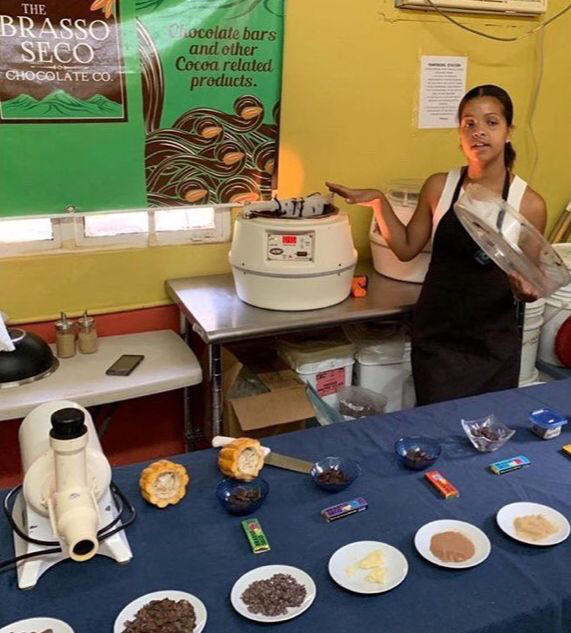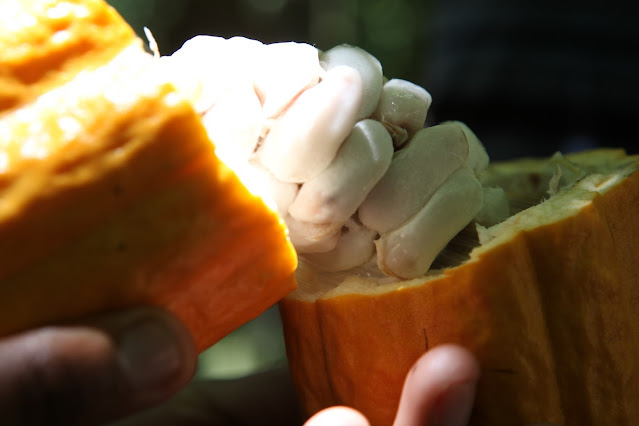New Cocoa Challenges

The cocoa industry over 100 years ago was focused on export of beans, mainly to Europe. Today, new entrepreneurs have restarted the Trinidad and Tobago cocoa industry at home with chocolate making. Pat Ganase reports on some 21 st century cocoa challenges. Gillian Goddard’s home-based enterprise started with drying bananas and processing cocoa nibs ten years ago. She learned to make chocolate – from online demonstrations – and has extended her influence to empower individuals and communities. Today, Goddard and the Alliance of Rural Communities are dealing with a shortage of cocoa beans to keep their enterprises going, to ensure the health of communities and deal with the bigger issues of climate change. “We called the meeting of cocoa and chocolate producers and associated institutions because our #1 issue is solidarity. We have a common shared experience. In the face of institutional silence, we need a community response,” said Goddard, fou...


